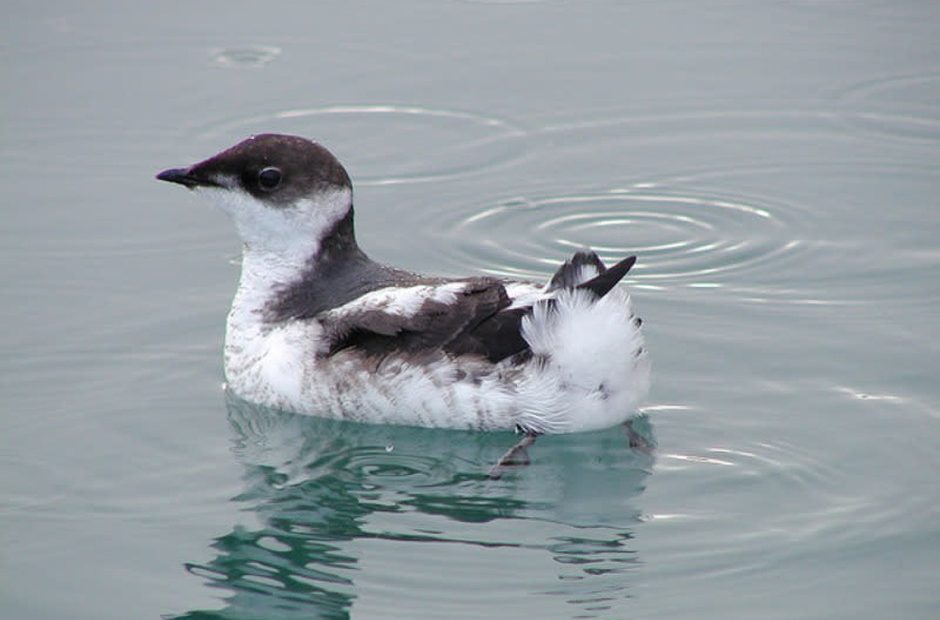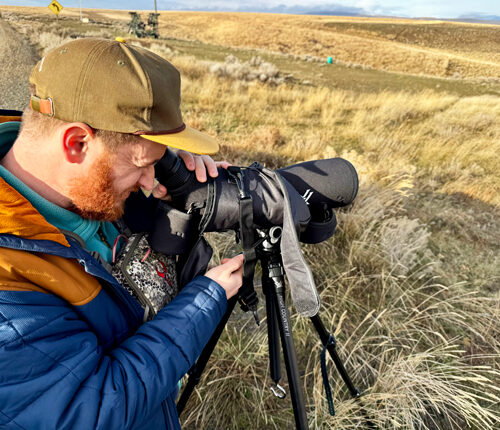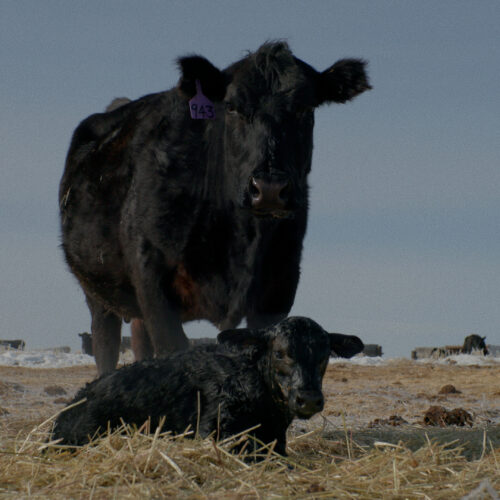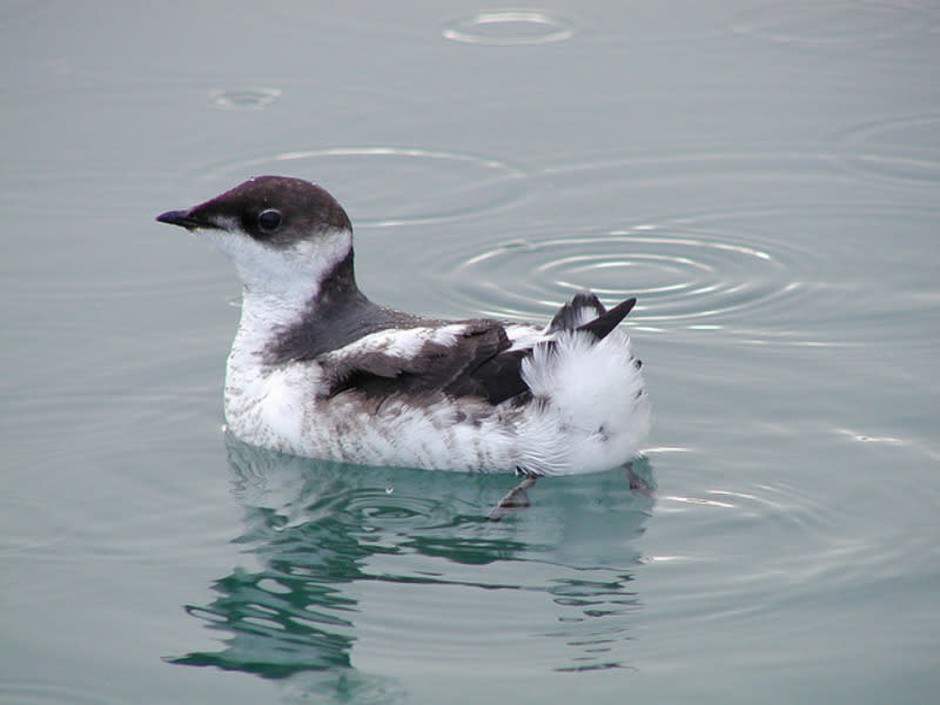
Oregon Reverses Course On Increasing Protections For An Imperiled Seabird
Listen
The Oregon Fish and Wildlife Commission has decided not to elevate the endangered species status of the marbled murrelet after all.
The board reversed its earlier vote on the issue at a meeting Thursday.
Commissioners had voted in February to change the “threatened” status of the seabird to “endangered.”
But Commissioner Bob Webber, who changed his vote once in February to support the up-listing, changed it back on Thursday. He said new information changed the way he was thinking about the issue.
“I obviously was torn at the meeting in February,” he said. “Whatever we do today is not going to be chiseled in stone. When and if there is new information that might change people’s minds, I feel comfortable that it will be presented and we can reassess it.”
He and three other board members, including Michael Finley, Bruce Buckmaster and Jim Bittle, voted not to increase state endangered species protections for the bird.
They said, given conflicting long-term and short-term data about the population status of the bird, they are willing to wait for an ongoing study by Oregon State University to produce more conclusive information.
“I can’t come to the conclusion that the population is currently at serious risk,” Finley said. “Let’s wait a few years and let scientists update us on how this species is doing.”
Commissioners Holly Akenson and Greg Wolley voted in support of added protections, noting concerns about poor ocean conditions and climate change that could negatively affect the birds in the future.
“Based on the data we have, I personally feel we can up-list the species,” Akenson said. “It’s not an easy decision, but it is a decision based on science and data.”
The February vote triggered the development of “survival guidelines” for the species that identify critical habitat sites, as well as strategies for protecting the bird to ensure the species’ ultimate survival.
The commission was scheduled to review those guidelines at its meeting Thursday and Friday and vote to officially reclassify the marbled murrelet as a state endangered species. Instead, the board reversed course.
Commissioners still plan on adopting voluntary survival guidelines, but they delayed that decision until their August meeting.
Some of the key nesting habitat for the marbled murrelet is on state-owned forestland, and the Oregon Department of Forestry is in the process of updating the rules for how to manage logging near murrelet habitat.
Forest landowners and timber industry groups raised concerns that the added endangered species protections for the birds would come at the expense of timber industry jobs and logging on private forestland.
Seth Barnes, director of forest policy with Oregon Forest & Industries Council, told commissioners Thursday that a vote against up-listing the species was not a vote for the timber industry.
“Nor is it a vote against the marbled murrelet,” he said. “It’s just the right thing to do. The science is just not there for an up-listing.”
Bob Sallinger, conservation director for the Portland Audubon Society, said he thinks the commission bowed to pressure from the timber industry and that without “endangered” status for the bird, the voluntary guidelines for ensuring its survival will be ignored.
“The state is turning its back on this bird,” he said. “They reversed themselves and allowed the murrelet to continue on its path to extinction.”
Copyright 2018 Oregon Public Broadcasting
Related Stories:

Searching for sage grouse: Looking for a chicken-sized needle in south-central WA
Seth Hulett, Audubon Washington’s senior program manager of the Columbia Plateau, searches through his spotting scope for sage grouse. (Credit: Courtney Flatt / NWPB) Listen (Runtime 4:12) Read In south-central

Could the status of grizzly bears change in the lower 48 states?
Listen The U.S. Fish and Wildlife Service has proposed an update to how grizzly bears are managed throughout the country (Credit: National Park Service) (Runtime 0:55) Read There could be

New film explores cattle mutilation mystery in Oregon
The film, “Not One Drop of Blood,” highlights the communities trying to solve the decades-long mystery of cattle mutilation. (Courtesy: Jackson Devereux and Lachlan Hinton) Listen (Runtime 6:00) Read Phineas
















